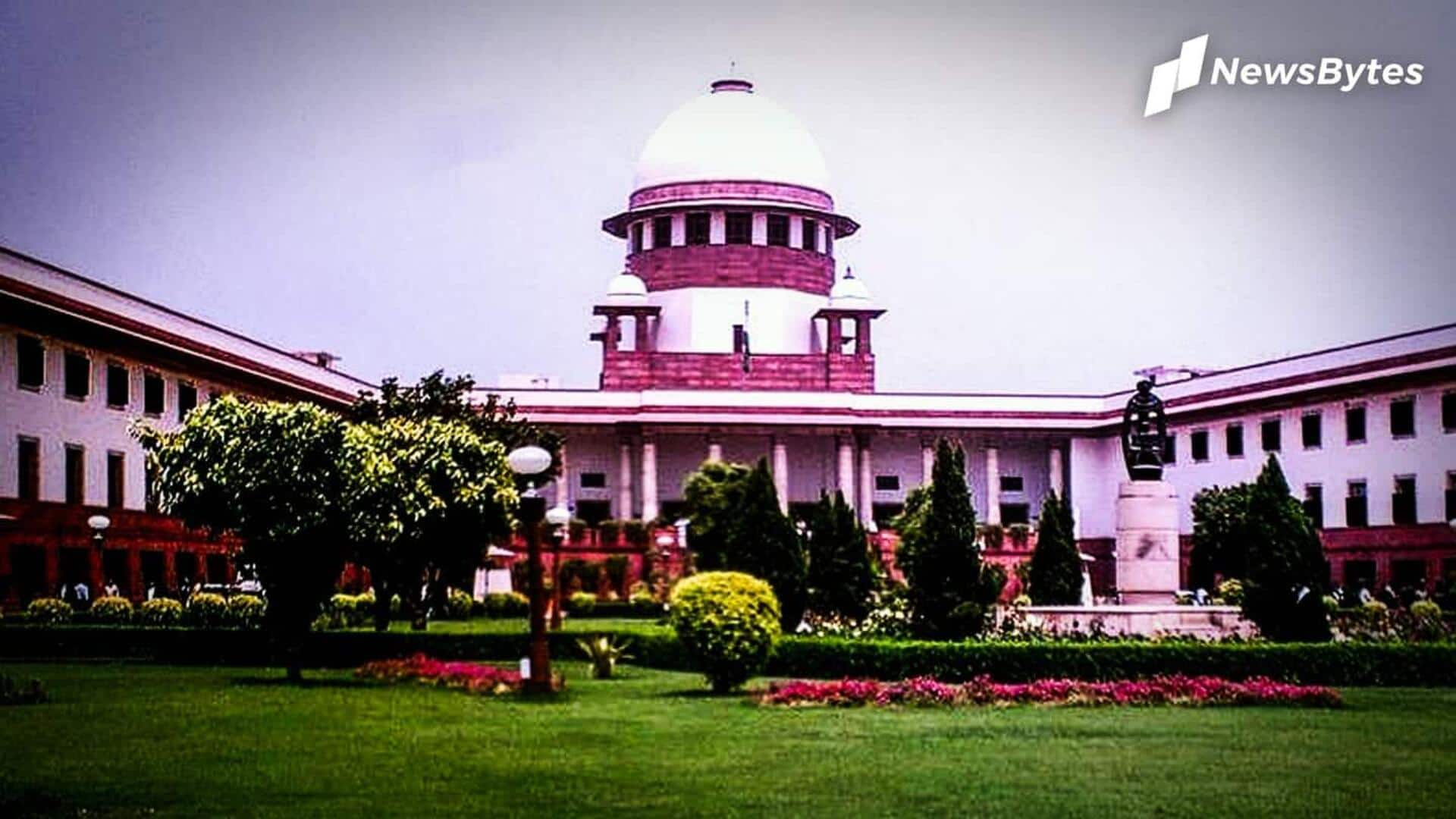
'Married women...already protected, can't criminalize marital rape': Centre tells SC
What's the story
The Union government has filed an affidavit in the Supreme Court opposing petitions seeking to criminalize marital rape.
The affidavit, submitted by advocate AK Sharma on behalf of the Union Home Ministry, argued that this issue is primarily social rather than legal and should not be decided without consulting all stakeholders or considering views from all states.
Consent debate
Government's stance on consent and punishment within marriage
"The Central Government asserts that a woman's consent is not obliterated by marriage, and its violation should result in penal consequences. However, the consequences of such violations within marriage differ from those outside it," the affidavit said.
The Centre said it recognizes an expectation for reasonable sexual access in marriage but clarifies this does not permit a husband to force his wife into sex against her will, according to Bar and Bench.
Legal protections
Existing laws protect married women's consent: Center
At the same time, it argued that it might be excessive and disproportionate to punish a man under anti-rape laws for such an act.
The Centre also highlighted that Parliament has already enacted various laws to safeguard a married woman's consent within marriage.
These include laws against cruelty to married women (Section 498A under the Indian Penal Code), laws against acts violating women's modesty, and remedies under the Protection of Women from Domestic Violence Act, 2005.
Marriage perspective
Centre criticizes petitioners' view of marriage
The Centre further criticized the petitioners for viewing marriage as a private institution, calling this perspective one-dimensional.
It argued that a case involving a married woman and her husband should not be treated identically to other cases.
The government maintained that it is up to the legislature to determine the penal consequences of sexual abuse in different situations.
It also asserted that existing law does not ignore consent but differentiates between sexual advances within and outside marriage.
Commitment reaffirmed
Government's commitment to women's liberty and dignity
The Union government reaffirmed its commitment to women's liberty and dignity, arguing that marital rape does not need to be criminalized as there are already "suitably tailored penal remedies."
It expressed concern over the far-reaching implications of applying rape laws in matrimonial relationships.
The Delhi High Court issued a split verdict on whether marital rape should be considered a criminal offense in 2022.
The case then reached the Supreme Court in September of that year.